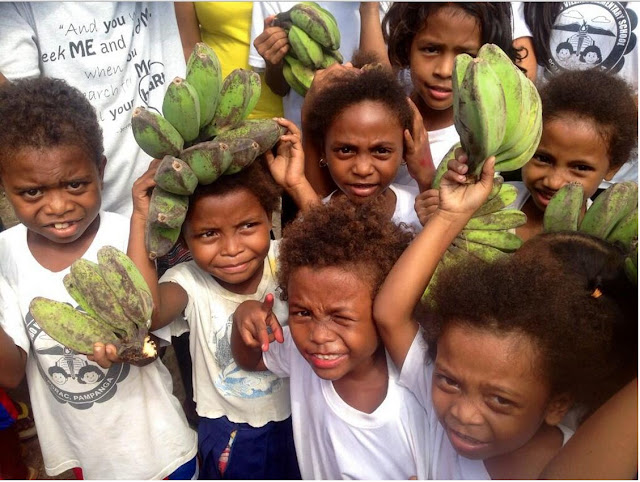Aeta
The Aeta people in the Philippines are Australo-Melanesians, which includes other groups such as Aborigines in Australia; Papuans; and the Melanesians of the Solomon Islands, Vanuatu, Fiji, and the French overseas special collectivity of New Caledonia.
The history of the Aeta continues to confound anthropologists and archaeologists. One theory suggests that the Aeta are the descendants of the original inhabitants of the Philippines, who, contrary to their seafaring Austronesian neighbors, arrived through land bridges that linked the islands with the Asian mainland. Unlike many of their Austronesian counterparts, the Aetas have shown resistance to change. The attempts of the Spaniards to settle them in reducciones or reservations all throughout Spanish rule failed.
According to Spanish observers like Miguel López de Legazpi Negritos possessed iron tools and weapons. Their speed and accuracy with a bow and arrow were proverbial and they were fearsome warriors. Unwary travelers or field workers were often easy targets. Despite their martial prowess, however the Aeta's small numbers, primitive economy and lack of organization often made them easy prey for better organized groups. Zambals seeking slaves would often take advantage of their internal feuding. They were often sold as slaves to Borneo and China, and unlike the debt-slavery imposed on other Filipinos, there was little chance of manumission.
The Aeta are an indigenous people who live in scattered, isolated mountainous parts of the Philippines. They are nomadic and build only temporary shelters made of sticks driven to the ground and covered with the palm of banana leaves. The well-situated and more modernized Aetas have moved to villages and areas of cleared mountains. They live in houses made of bamboo and cogon grass. Aetas are found in Zambales, Tarlac, Pampanga, Panay, Bataan and Nueva Ecija, but were forced to move to resettlement areas in Pampanga and Tarlac following the devastating Mount Pinatubo eruption in June 1991.
Mining, deforestation, illegal logging, and slash-and-burn farming has caused the indigenous population in the country to steadily decrease to the point where they number only in the thousands today. The Philippine government affords them little or no protection, and the Aeta have become extremely nomadic due to social and economic strain on their culture and way of life that had previously remained unchanged for thousands of years.










No comments:
Post a Comment